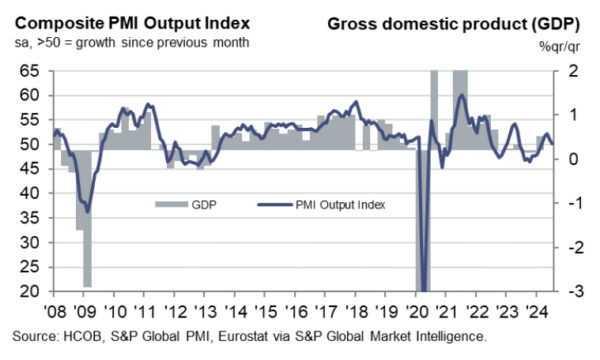Eurozone PMI Services was finalized at 51.9 in July, down from June’s 52.8, a 4-month low. PMI Composite was finalized at 50.2, down from June’s 50.9, a 5-month low. These figures indicate a slowing economy as the services sector loses momentum and the industrial sector continues its decline.
Cyrus de la Rubia, Chief Economist at Hamburg Commercial Bank, stated, “The eurozone’s economy is growing at a snail’s pace.” He noted that while the services sector isn’t picking up speed as it did earlier in the year, the industrial slump persists. The HCOB Composite Output PMI barely stays above the expansion line, signaling a weak start to H2 despite surprisingly strong economic growth in the second quarter. De la Rubia added, “Given this situation, our 0.7% growth forecast for the year is still conservative.”
Inflation remains a significant concern. Although sales prices are increasing at their slowest rate in 38 months and input costs are generally following suit, inflation is still high relative to the weak economy. Historically, when PMI activity index was at 52.0 or lower, selling prices typically stayed flat, and input prices rose much more slowly than they are now. De la Rubia attributes this to wage pressure caused by demographic shifts, which complicates ECB’s efforts to achieve its 2% inflation target.

